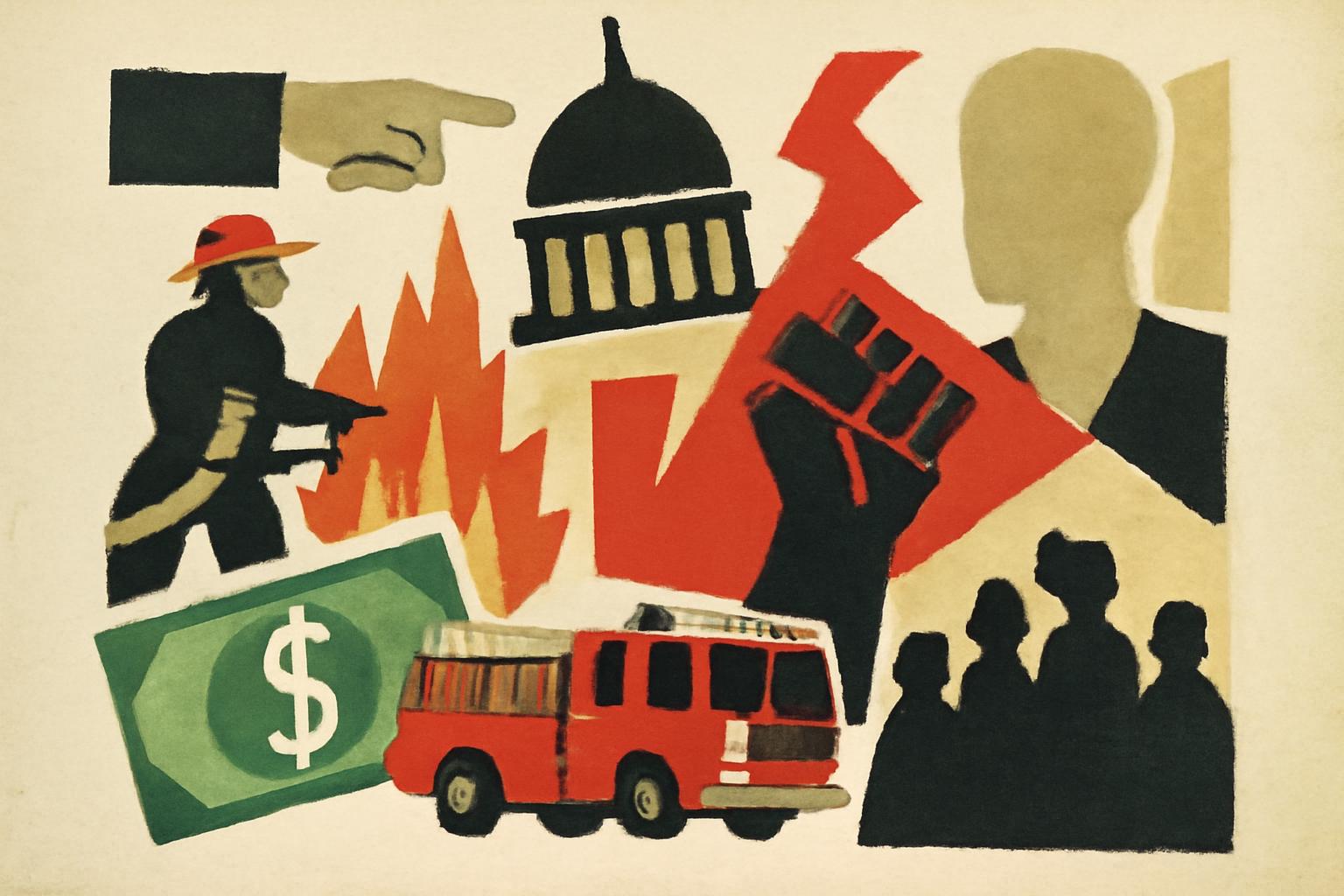The state’s failures are on spectacular display here. Despite billions extracted in taxes year after year—ostensibly to fund “public safety” and “climate preparedness”—what do we see? Lethargic, bureaucratic, underprepared government apparatuses, always a step behind when disaster strikes. The state is always a promise-maker and never a problem-solver, as Hayek would say: planners possess neither the localized knowledge nor the incentives to protect us from, or respond competently to, wildfire and heat emergencies. Instead, politicians busy themselves with public rituals of panic, excuses, and grandstanding.
These wildfires and heat disasters expose both the arrogance and impotence of central planning. Every modern government claims omniscient control over nature and society, yet when people need real, rapid, local action—helping their neighborhoods, shelters, or evacuations—they find themselves abandoned, or worse, ordered about by distant authorities wielding restrictions and policing. It's no surprise that volunteers do much of the real firefighting work in Greece, with ordinary people showing more initiative, innovation, and neighborly compassion than legions of government employees. This is the “spontaneous order” that Hayek hails: decentralized action outperforms lumbering state machinery every time.
Meanwhile, the typical statist response is to call for more taxes, bigger budgets, and “international coordination”—more coercion, more bureaucracy, less liberty, and less autonomy. Rand would spit on such paternalism. The true answer is to dismantle these parasitic administrations and let voluntary associations, markets, and insurance mechanisms handle prevention, firefighting, and recovery. Private firms would have powerful incentives—profit and liability—to invest in real readiness and rapid intervention, unlike tax-funded, unaccountable state agencies. There is no moral justification, Nozick would remind us, for compelling taxpayers and property owners to foot the bill for the failures and excesses of collective government.
Worse, as always, the state exploits disaster to justify encroachments—such as water use restrictions, “emergency” rules, and police powers—creeping authoritarianism disguised as safety. It is never the time for liberty, always the time for submission; the weather is just a convenient excuse.
Climate and disaster resilience require innovation, responsibility, and entrepreneurship. The state provides none of these, only force and misallocation. These tragedies are not natural; they are the predictable consequences of a system that dreams of control and delivers only chaos. Cut the state down to size. Get it out of the way. Only freedom offers us hope or solutions.
